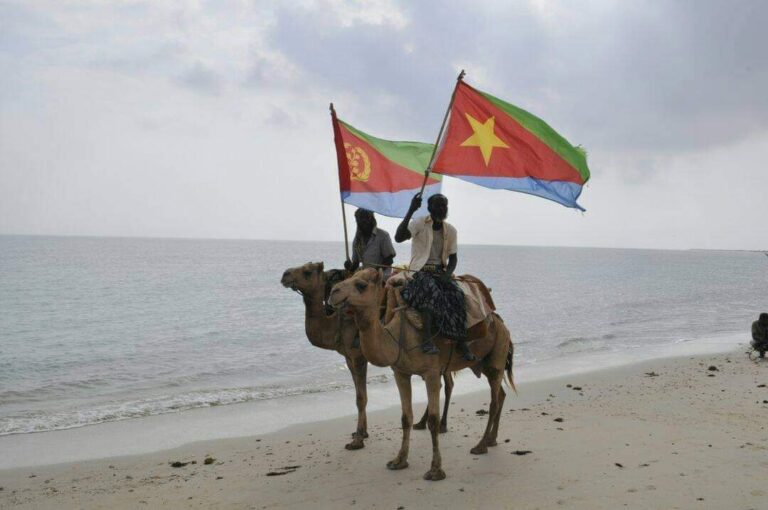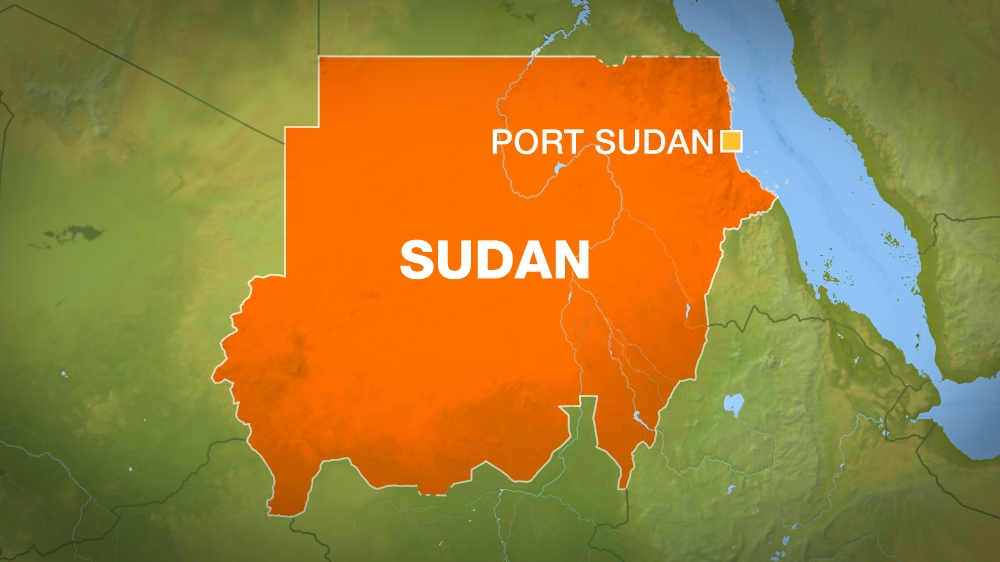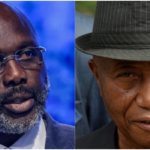There are emerging fears that all the gains made five years ago toward Ethiopia and Eritrea peace could soon be in jeopardy.
Prime Minister Abiy said that Ethiopia deserves a port on the Red Sea of its own which shouldn’t come at a huge cost. He has signaled his country’s preparedness to regain access to the Assab port.
He claimed that the Red Sea and the Nile will determine Ethiopia. They are interlinked with Ethiopia and will be the fundamentals that will either bring in Ethiopia’s development or bring about its demise. Drawing lessons from the controversy surrounding construction of the Grand Ethiopian Renaissance Dam on the Nile River, Abiy suggested that conversations around the port on the Red Sea shouldn’t be off-limits. Addis Ababa’s tone has become increasingly assertive, similar to that used by Ethiopian officials when discussing the construction of the massive Grand Ethiopian Renaissance Dam on the Nile River.
“The thing that saddens me the most and pains me, is that discussing the Red Sea agenda even at the level of parliamentarians is considered a taboo,” he told lawmakers.
Access to the port of Assab by Ethiopia since 1998 has been truncated due to a 20-year border war between the neighboring nations that killed tens of thousands of people.
Ethiopia used Eritrean ports for a nominal port fee that was paid in birr. That was made not because Eritra did not need revenue from port use but because of the Eritrean Government’s firm policy that the issue of Eritrean ports used by Ethiopia should not be a source of conflict between Eritrea and Ethiopia.
The conflict forced Ethiopia to channel its goods and other port-related trades through neighbouring country of Djibouti, which borders both Ethiopia and Eritrea.
Ethiopia and Eritrea made peace in 2018, formally ending their border conflict. But control of the Assab port, which serves both countries, has sparked new tensions and led to fears of a fresh dispute.
When Ethiopian Prime Minister Abiy Ahmed came into office in April 2018, he worked to secure a peace deal with former foe, Eritrea.
Abiy and Eritrean President Isaias Afwerki signed a historic peace deal later the same year to end decades of fighting.
At the center of these concerns is Ethiopia’s quest to have access to a port on the Red Sea — specifically the port of Assab, located in Eritrea which was part of Ethiopia until it gained independence more than 30 years ago.
The main issue is that neither Ethiopia nor Eritrea nor the people of Afar who live in and around the coastal areas benefit from the ports.
Earlier in July, Abiy was also reported to have spoken on the same topic of the ports, telling a meeting of business executives that Ethiopia wanted to get a port by peaceful means, but, stressing if that fails, he could use force. The prime minister subsequently appeared to change his mind about his willingness to use force to secure access to the port.
In a speech on October 13 Abiy said he wanted the issue of access to the port resolved peacefully. Abiy’s pronouncements are diversionary, a year after ending an internal Ethiopian conflict with the country’s Tigray region. So for him, to raise the issue of port might help him to divert the attentions from internal economic and military crises.
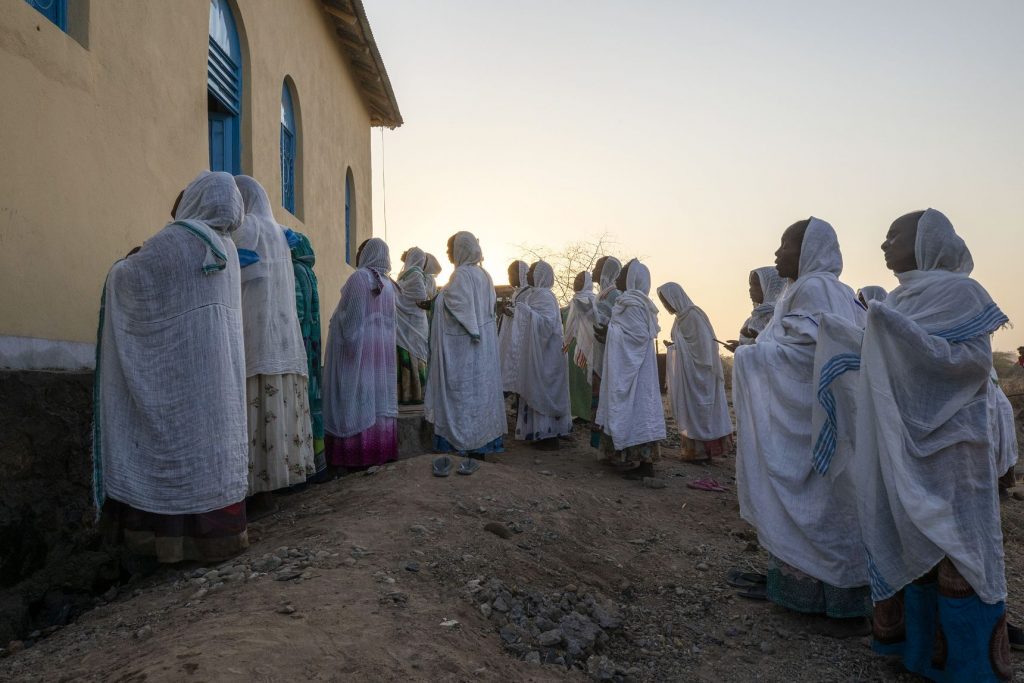
More on this story: Ethiopia faces ethnic conflict, feeded by war crimes in Tigray
Thus, his words have only political gains but nothing more ahead of a general election. Abiy is trying to say that the early ’90s unilateral declaration of Eritrean independence may not be technically valid to the Ethiopians and therefore they would need a port. Even if they would not need the whole of Eritrea, they would need a port that is legitimately theirs, according to Ethiopia.
There is a little chance that Abiy would dare to invade Eritrea, even if he wants, because he doesn’t have the capacity execute. Any military maneuver to act against that agreement would likely result in more sanctions and global condemnation, as it would amount to attempting to illegally annex foreign land.
Any potential forceful approach to secure port access in a neighbouring country could derail Ethiopia’s ongoing negotiations with the International Monetary Fund to secure billions in loans to help rebuild the country after the war. However, local businessmen claims that Abiy told them that the option of military force remained on the table in case event of the failure of negotiations to secure port access with neighboring countries.
But the prime minister’s messages are likely seen as a strategy to win back some of the support lost in recent months. Fringe hardliner nationalists, who 30 years on still reject Eritrean independence, could be lured back towards the Abiy base, by the prospect of gaining seaports and capturing the Eritrean ports of Massawa or Assab, long considered in those circles to be legitimate Ethiopian territory.
However, Abiy’s support is being depleted. His government disbanded a regional paramilitary force in the Amhara region in April, costing him significant support among Ethiopian nationalists, a critical support base for him. Abiy’s deployment of troops to Amhara to fight the rebel militia led to even more former supporters becoming critics.
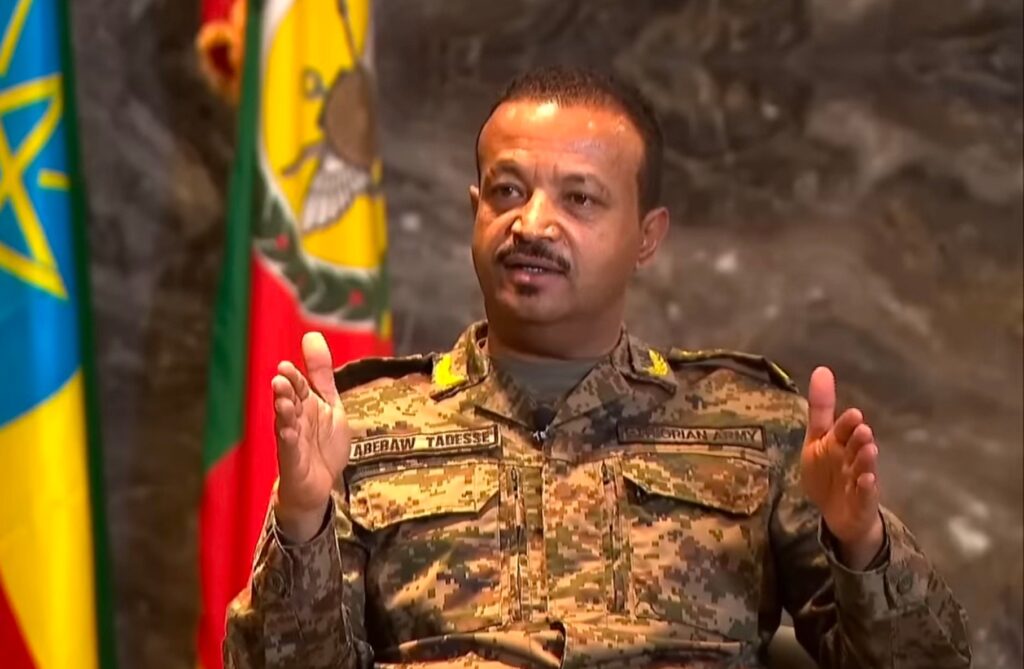
More on this story: Ethiopia’s Regional Forces Reintegration likely to put them in shadow
Some sources in UN concerned that Abiy’s goal is political. When he is able to make economic gains for Ethiopia it gives him more legitimacy, it gives him more support to stay on. But when the economic situation is worsening, what he is actually doing is blaming the economic challenges on the fact that Ethiopia lacks a port and again while doing that he is gathering political support in order to pursue things like that.

More on this story: Ethiopian ethnic clashes as a sign of a weak government and risks of state split
Abiy enjoyed some significant amount of backing among Ethiopians for the war in Tigray between 2020 and 2022.Eritrea supported his government during that particular conflict, becoming an ally.
Eritrean government leadership wasn’t happy with how the conflict with Tigray ended. He suggested that the friendship struck in 2018 between Ethiopia and Eritrea may not be a lasting one.
The Eritrean president Afeworki thinks that the civil war that took place in Ethiopia, in Tigray region did not produce an important result, because the war did not destroy TPLF. The agreement signed confirmed the existence of TPLF but also guaranteed the TPLFs to control all the territories they used to administer. For these reasons, the prime ministers Abyi Ahmed actions are unilateral that excluded the Amharas and Eritrea who fought the TPLF alongside the Ethiopian government.
Eritrea has already condemned Abiy’s comments and posturing, expressing worry.
Ethiopia would have to reassess its push for a port using force since doing so could plunge the region into another conflict. Abiy should rather approach the entire quest for a port diplomatically in order not to spark another conflict.
Ethiopia’s aspiration to sea access should not be regarded as a mere agenda of the government or the ruling party and it has an overwhelming support from public at grassroots level.
Withstanding some groups’ attempt to tackle Ethiopia’s aspiration for mutual growth, the government should persist in its stance and focus on the solidness and appropriateness of the quest that also considers the interests of coastal neighbors.
Ethiopia lost its sea outlets due to political conspiracy and lack of interest from the previous government.
During the reign of Emperor Haileselassie I, Ethiopia regained its access to the sea through a meticulous diplomacy and negotiation at international level and the current quest for sea-gate is a national demand that has been passed down through generations.
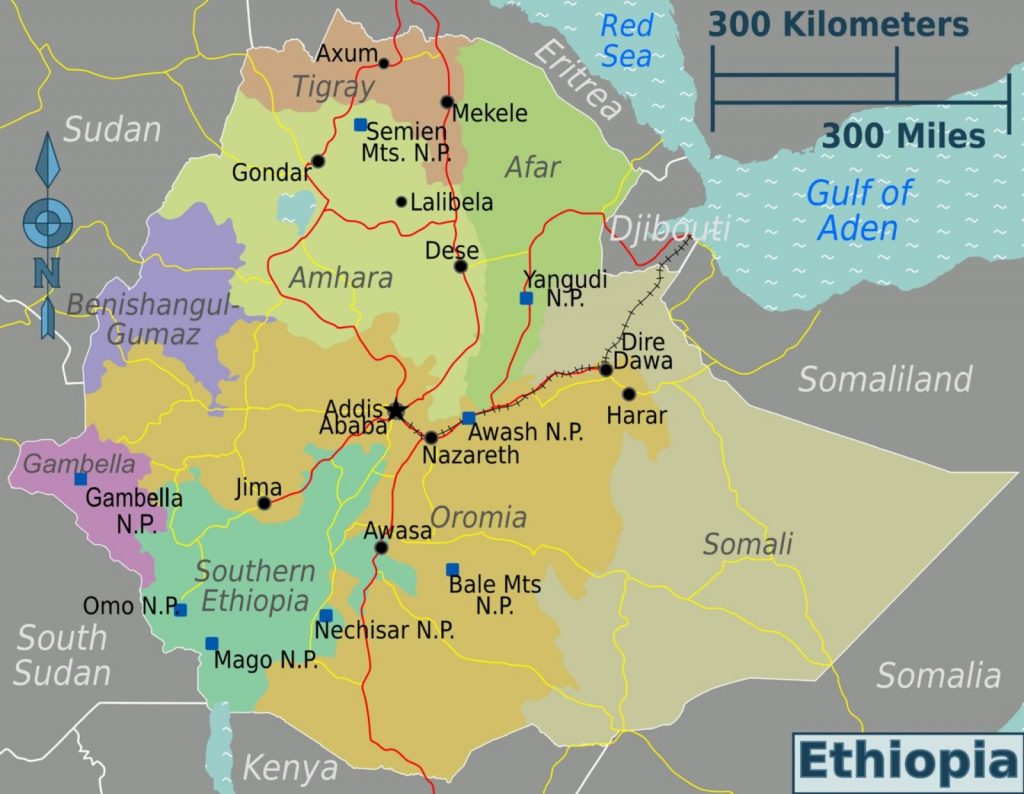
More on this story: Tensions between Ethiopia and Sudan and prospects for this standoff
Abiy understands that access to sea is the major solution to cut poverty, attain sustainable economic growth and ensure the country’s existence amid the fastest growing population.
The issue of the Red Sea in Ethiopia has long been placed on the back burner though the biggest nation lies a few kilometers away from the strategic location. With the Ethiopian naval force disbanded, Ethiopia has been a bystander for decades ultimately affecting its socioeconomic and political hegemony.
The Eritrean Afar National Congress (EANC has called on the Ethiopian government to recognize the territorial rights of the Eritrean Afar people.
In a statement released on 20 October, 2023, the EANC warned that any unilateral action by Ethiopia to gain control over the Port of Assab, in collaboration with the current Eritrean regime, would violate international laws and compromise Eritrean sovereignty. It would also undermine the right to self-determination of the Eritrean Afar nation in their homeland, the statement said.
EANC accused the Eritrean government, led by President Isaias Afwerki, of carrying out policies of marginalization, violence, ethnic cleansing, and illegal land seizures against the Afar people over the past three decades.
Somalia is rejecting Ethiopian appeals to negotiate over potential Somali port access. Somali government ministers vowed to retain full sovereignty and control over all of Somalia’s strategic economic assets.
Djibouti also asserted its territorial sovereignty, acknowledging Ethiopia’s dependence on its main port at Djibouti while emphasizing its status as an independent nation.

More on this story: Tensions in Ethiopia fulfil the instability in Djibouti
Thus, the Abiy’s seaport rhetoric could be also a warning to Eritrean President Isaias Afewerki to cease playing a spoiler role in the country’s fledgling peace process.
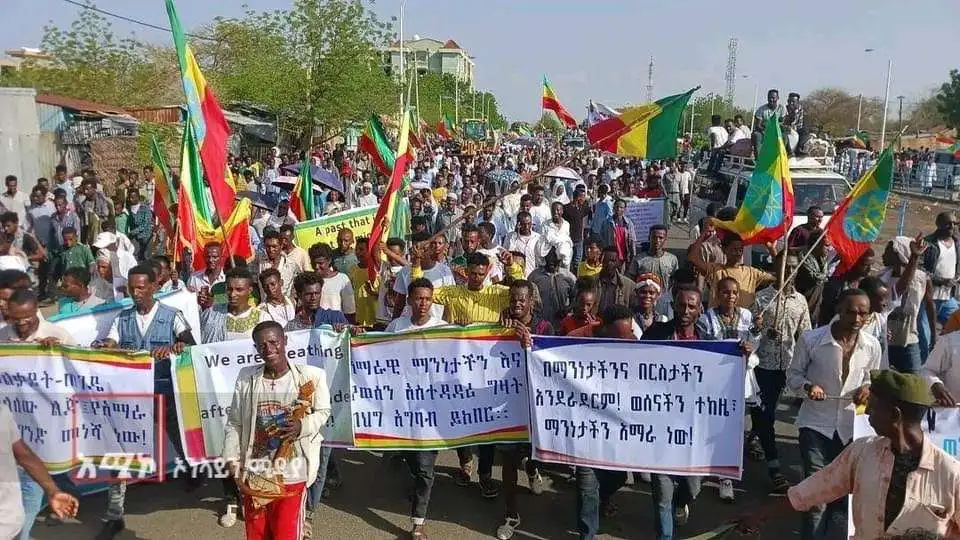
More in this story: Referendum in Ethiopia: more chance for broader military conflict


